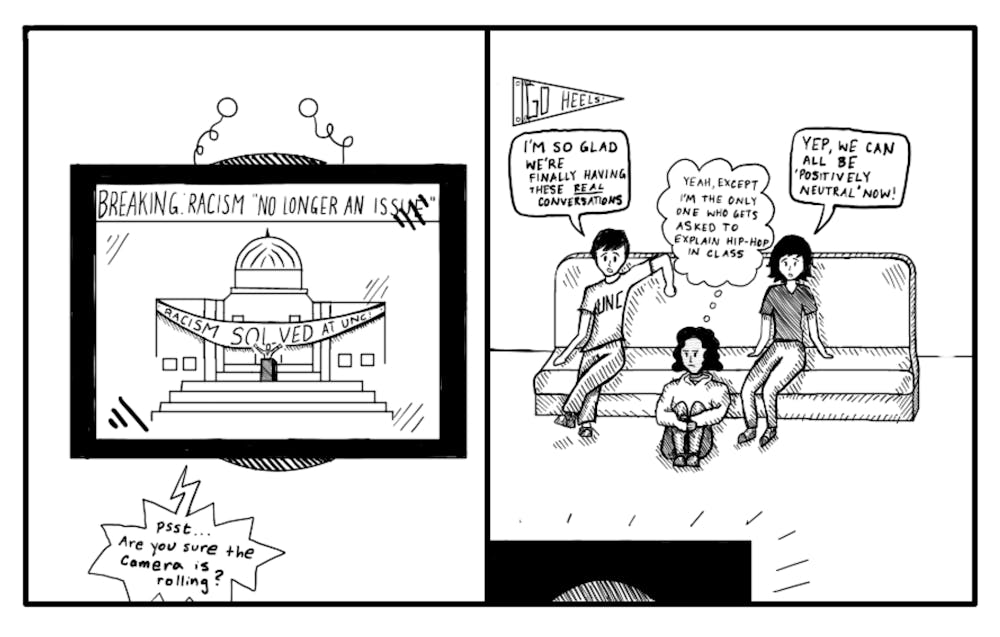This Black History Month, I came to a startling realization: UNC has realized a post-race America. Our liberal University has accomplished the grand ideal of color blindness, and I didn’t even notice!
So caught up with the uninteresting, unimportant events taking place on the national stage, I — an African American student — failed to appreciate the ways our super politically correct, woke campus has totally overcome racism. However, after a long day of careful observation, I realized that getting rid of diversity requirements from the general education curriculum doesn’t really matter; those courses were simply no longer necessary! Our students and staff have evolved far past anything a useless class could teach because they’ve already mastered anti-racism.
It first started to dawn on me after I went to the Quad, enjoying the warm weather (my favorite thing about climate change: jumping from 30 degrees to 72 in just a few days). While I was basking in the sun with hundreds of other students squeezed into our few inches of precious grass, I received a wonderful compliment from someone passing by: I look just like Amandla Stenburg, the one Black girl from the Hunger Games.
Why, just a few days ago I was told I look like Storm Reid. I look like her and Stenburg, as well as a random girl someone saw on TikTok and the illustrious Black girl on our University’s Canvas page — all four! At once! This white person was so kind to add to this list of totally unrelated women I’m similar to based solely on my unique traits and not at all on the matter of my complexion.
Bolstered by this lovely observation, I headed to my first class feeling an extra pep in my step. In this lecture (where I was one of four Black people), it filled me with an indescribable warmth to listen to my white classmates talk about the Black experience. Their monologues on the trauma of growing up witnessing racism and their passionate input on the tragedy of oppression enlightened me; anything I thought I knew about being Black was enhanced through these discussions as they spoke over me and all three of the others. It was clear that they understood these things more deeply than we could ever hope to.
In my next class, my professor mentioned several activists as they prepared that day’s presentation on progressive organizing. While they spoke, they barely made eye contact with me every time a Black person was mentioned! As expected, Gandhi and Harvey Milk gathered no glances in my direction. Rosa Parks — a quick peek, not even noticeable. In fact, the look when she said Martin Luther King Jr. was hardly a millisecond.
After such diverse, interesting learning experiences, I walked through our beautiful campus full of residence halls and buildings bearing the names of slave owners, Confederates and white supremacists. I reached my destination, a picnic blanket on the Quad — again, how could I avoid it? There, my friends greeted me happily.
After chatting aimlessly, a friend of a friend reached out and touched my hair, which was out in its natural afro state. At first, I wanted to say something, but then I remembered that race no longer mattered here! She wanted to know what it felt like, and I didn’t even care that this girl I’d met twice before touched me without my permission. At least she thought it felt nice!
What a wonderful day! I scarcely remembered my Blackness the entire time, so swept up in the equal, color blind way I was treated by my peers. Looking back on it, I have to applaud our University for the many ways it has overcome the, in hindsight, tiny obstacle of race.



